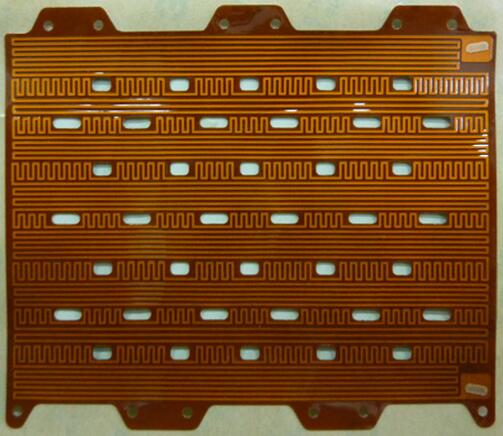
Up to now, there is no perfect fpc soft board base material available for manufacturers, and some material specifications can be used to define their characteristics. These characteristics cover a wide range, and the material must meet at least some characteristics to meet the requirements of the final product. Although known materials often fail to meet the needs of the manufacturers used, keeping the profile of material characteristics in mind will help designers choose a balanced view of materials. Some friends don't know how to choose the base material. Let's talk about it in detail.
1. Dimensional stability of base material
The ideal fpc softboard substrate should have a very stable size. The reduction or expansion of the fpc softboard substrate in the manufacturing process is a major issue for the production and users, because it will affect the production and assembly of the fpc softboard at the same time, especially if it is difficult to predict the size change of the fpc softboard. Some steps can deal with the impact of unstable materials on size, but the materials that can be treated without these means have more advantages.
2. Heat resistance of the whole material
Most electronic assemblies will use heating process. For example, component assembly and back-welding is a common process. The soft plate material used in this process should be able to withstand the processing temperature without causing excessive distortion. This is a clear definition, but from the perspective of science and environmental protection, the world has begun to promote lead-free soldering technology, which makes the demand for heat resistance of materials more urgent.
3. Tear resistance
Many fpc soft plate structures are thin without strengthening treatment, and they are easy to be damaged or torn. Therefore, the base material used for fpc soft board production should have tear resistance.
4. Electrical characteristics
The importance of electrical properties of materials will continue to increase with the increase of signal speed. The materials that fpc softboard likes to use should have the necessary electrical characteristics of the designer. In the face of the popularity of high-speed signals, the demand for dielectric coefficient and signal loss of materials is lower, and high insulation resistance is the expectation of high voltage applications. The ideal material should be able to meet various needs and meet the electrical expectations of various designs, but this is still the dream of fpc soft board material that needs to work hard.
5. Flexibility
Flexibility must be the key feature of fpc soft plate material. From this perspective, we expect that fpc soft plate can be exposed to extreme temperatures, from high to low temperatures. Therefore, in a wide temperature range, how to maintain flexibility is a basic topic.
Especially the flexibility at low temperature should be more careful. Most materials will be brittle at low temperature. In the application of electronic products, the soft board material is expected to have low temperature wetness. Moisture will cause negative impact on the manufacturing process, and will also affect the performance of the physical properties of the final product.
6. Batch consistency
Mass production is bound to face process and time changes, so product consistency is the key to good process control. When faced with several standard deviation quality objectives, without stable material consistency, this level may never be achieved in the manufacturing process. At this time, the required consistency of materials includes: physical properties, mechanical properties, electrical properties, etc. These are the key. Consistent performance can ensure stable and smooth use of products, both in production and application.
7. Reasonable cost
Seeking a reasonable cost solution is the common principle of electronic products. The manufacturers always look for the source of materials with lower price, so the manufacturers and assembly may only enjoy a small profit. However, the key point is to pay attention to the impact of changes on the overall product, and whether the choice of replacement supply will impact the manufacturing quality and the overall cost, rather than just the cost of material entry.
8. Chemical resistance
According to the application, the fpc soft board material needs to have various degrees of chemical resistance, which is equally important for manufacturers and end users. Soft plate manufacturing uses a variety of different corrosive chemicals, which will make the manufacturer worry about whether the material can withstand these chemicals. Therefore, fpc soft board materials must be compatible with a variety of chemicals, including solvents used in assembly and cleaning processes.

Online
Service
ConsultationTime:9:00-18:00
Hot
Line
0755-27847787
7*24H Service
Follow
Us
 Website
Website